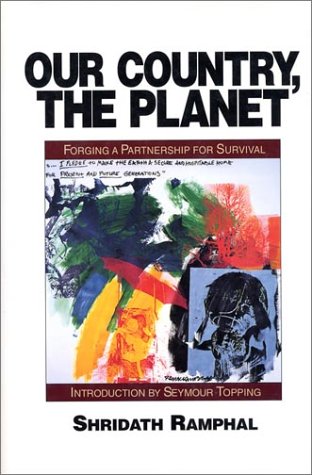Global warming. Acid rain. Expanding deserts. Dwindling forests. Depletion of the ozone layer. Freshwater scarcity. The problems are all too familiar, and the lengthening list adds up to a crisis that threatens to overwhelm us unless an unprecedented level of international cooperation can be reached. But all countries have not contributed equally to these problems, and all are not in equal positions to solve them. Shridath Ramphal, former secretary-general of the British Commonwealth and president of the World Conservation Union, warns in this timely book that the global effort needed to solve the environmental crisis has been undermined by fundamental differences between the developed and developing worlds. Ramphal presents a course of action that accounts for the needs and limitations of both rich and poor countries. He argues that industrial countries must consume less energy so that poorer countries may consume more, allowing for increased development without a corresponding increase in the overall level of greenhouse gases. He presses for more equitable trade policies that would allow developing nations to work their way out of poverty rather than rely on hand-outs, which would only lead to continued dependence. In addition, he shows how industrial countries have stymied progress in the developing world by subsidizing their own agricultural products, levying stiff tariffs to keep out processed and manufactured goods, and ensuring that commodity prices remain low--all of which have left developing countries no choice but to over-exploit their natural resources and degrade the environment in a desperate attempt to compete in world markets.
- ISBN10 1559631651
- ISBN13 9781559631655
- Publish Date 1 March 1992
- Publish Status Out of Stock
- Out of Print 13 January 2009
- Publish Country US
- Imprint Island Press
- Format Hardcover
- Pages 291
- Language English
